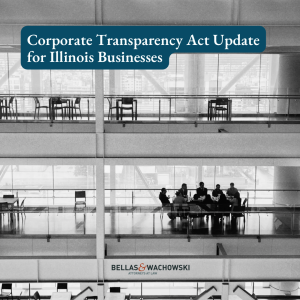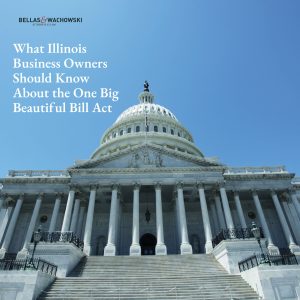 Illinois business owners have been closely following developments under the Corporate Transparency Act (“CTA”), particularly given the uncertainty created by conflicting court decisions and shifting enforcement positions. A recent federal appellate ruling provides important legal clarity, although practical compliance obligations for Illinois entities remain limited for now.
Illinois business owners have been closely following developments under the Corporate Transparency Act (“CTA”), particularly given the uncertainty created by conflicting court decisions and shifting enforcement positions. A recent federal appellate ruling provides important legal clarity, although practical compliance obligations for Illinois entities remain limited for now.
Federal Appellate Court Upholds the CTA
On December 16, 2025, the United States Court of Appeals for the Eleventh Circuit issued a unanimous decision in National Small Business United v. U.S. Department of the Treasury, holding that the CTA is constitutional. This ruling overturned a March 2024 federal district court decision that had invalidated the statute.
 Chicago Business Attorney Blog
Chicago Business Attorney Blog










